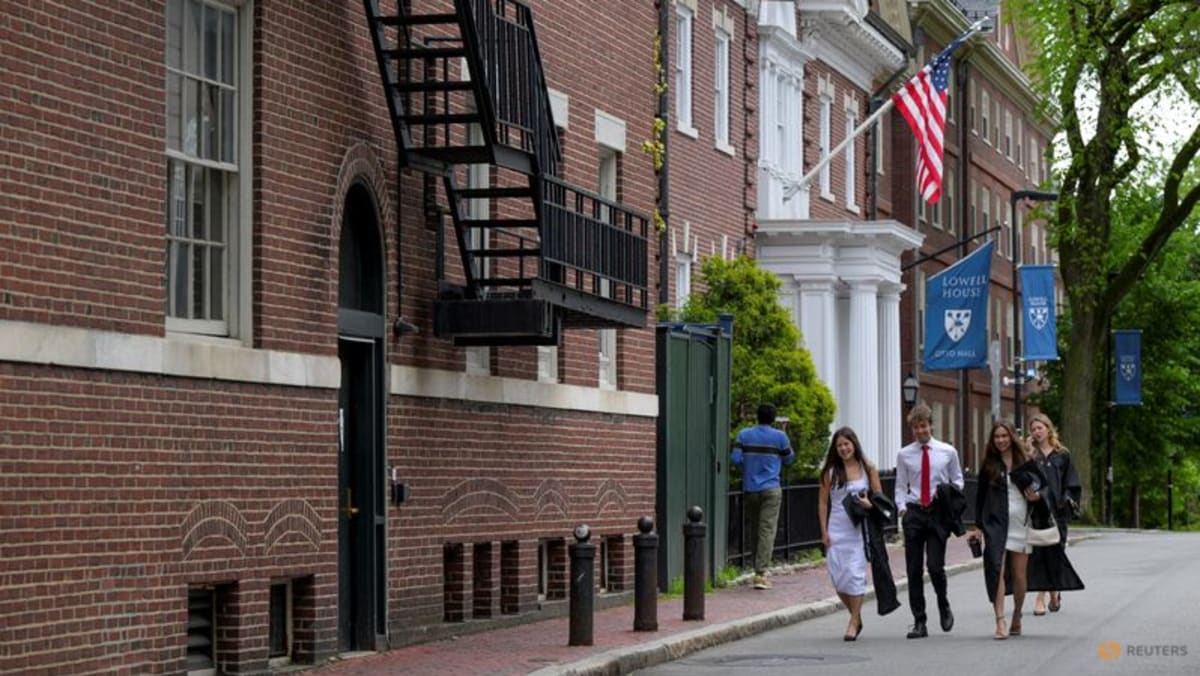SINGAPORE: Music teacher Sharon had long dreamed of studying piano in the United States. With her children now grown, she finally pursued that goal – auditioning in person, enduring multiple screening rounds and securing offers from two American universities.
But on Tuesday (May 27), her plans were thrown into turmoil.
An internal cable obtained by Reuters revealed that US President Donald Trump’s administration has ordered consular offices worldwide to stop scheduling new visa interviews for students and exchange visitors. The move comes as the State Department prepares to expand its vetting of applicants’ social media activity.
“It’s pretty disappointing. I’ve actually put in a lot of effort to go to America,” said Sharon, who asked that her real name not be used. “The audition preparation took about a year. If I cannot go, it’s going to be like a waste of … another academic year.”
UNCERTAIN POLITICAL SITUATION
Many affected students, speaking to CNA on condition of anonymity due to fear of visa repercussions, expressed deep concern over the US move.
Among them is Kevin, who had accepted an offer to study computer science at a university in California. He had wanted to study in the US since junior college, he told CNA.
“My end goal was always to potentially move there and work there, because I wanted to do tech, and I think the US is the best place to do tech,” he said.
But in light of recent political developments, including a controversial move to block Harvard from enrolling foreign students, Kevin decided to “play it safe” and enrol in a university in Singapore instead.
Before he changed his mind, he had settled most administrative matters and had just stopped short of getting his visa.
It was “too big of a risk”, especially because he would be funding his own studies, Kevin said.
“If I go, I’m always going to have this at the back of my mind, this stress about the political situation,” he said. “So I don’t think it’s worth that extra stress when you’re already stressing about things like finances, academics and career in uni.”
A judge has since suspended the Harvard directive pending a legal challenge from the university.
Students typically begin their visa application process shortly after accepting university offers in April or May. Sharon, for instance, is still waiting on her I-20 form, which certifies eligibility to apply for a student visa. Though she deferred enrolment to a later semester, her university had advised early visa preparation. Now, all she can do is wait to see how the situation unfolds – and scrub her social media profiles.
She has even considered deactivating her accounts, as she does not know what authorities will look for when vetting her online presence.
“I’m not young anymore,” she said. “If I’m going to go through another round of applications … I have to prepare everything all over again. There’s a lot of effort and time.”
In response to queries from CNA, the US Embassy in Singapore said visa applicants have been required to provide social media identifiers as part of the application process since 2019. A spokesperson said the State Department uses “all available information” to screen visa applications.
“At this time, applicants may continue to submit applications,” the embassy said, “as the consular section constantly adjusts schedules to allow for sufficient time to vet cases before them.”
